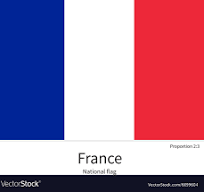On Friday, the French government implemented new curfew measures in Martinique in response to escalating civil unrest surrounding rising living costs on the Caribbean island. The local administration announced a ban on public gatherings, effective until October 14, and prohibited the purchase of items that could be utilized for arson attacks. These measures come in the wake of violent protests that have disrupted operations at Martinique’s airport, forcing the rerouting of flights to the nearby French island of Guadeloupe. This latest bout of unrest has been growing since September 2024 and is marked by widespread demonstrations fueled by economic grievances.
The underlying issues driving the protests in Martinique are largely connected to the escalating costs of living, which have put considerable strain on residents. Anger has been further exacerbated by the French Central Government’s imposition of bans on public protests in various municipalities. In addition to these political and economic tensions, the recent deployment of elite riot police, after a 65-year ban, has inflamed the situation. This decision came after a history of police violence against local demonstrators, creating an atmosphere of distrust and fear in the community.
Historically, Martinique has experienced cycles of protest and unrest, particularly around issues of racial and economic inequality. Long-standing dissatisfaction with these inequalities has sparked numerous demonstrations, pre-dating the current wave of unrest. Notably, during the COVID-19 pandemic, the island saw significant protests against the government’s handling of restrictions, further highlighting the widespread discontent among the populace. The climate of dissent in Martinique today is illustrative of broader struggles for social justice and economic stability.
Since the onset of protests in September 2024, the situation in Martinique has only intensified, signaling deep-rooted issues that the local population feels have been ignored by the mainland government. Economic distress, coupled with the heavy-handed approach of law enforcement, has led to a rise in confrontations and civil unrest. The adverse effects of these actions have not only affected the local community but have also impacted the broader Caribbean region, as seen with disrupted flights caused by the protests.
The government’s decision to enact curfew measures represents a tactical attempt to quell the unrest, although many residents may perceive these actions as further oppression. The historical context of police violence against protesters in Martinique adds a layer of complexity to the current situation, eliciting strong emotional responses from a populace that has long felt marginalized. The enduring legacy of racial and economic disparities complicates the dialogue between the citizens and the authorities, intensifying the call for change.
In summary, the situation in Martinique is a reflection of a larger struggle within the French Caribbean, where issues of inequality, government authority, and rising costs of living converge to create a volatile environment. As protests continue, the need for constructive dialogue and genuine reform becomes imperative to address the underlying grievances that have sparked this unrest. Without meaningful engagement from the government, there is a risk that the cycle of violence and protest will only perpetuate further, leaving the island and its residents in a state of limbo amidst escalating tensions.














